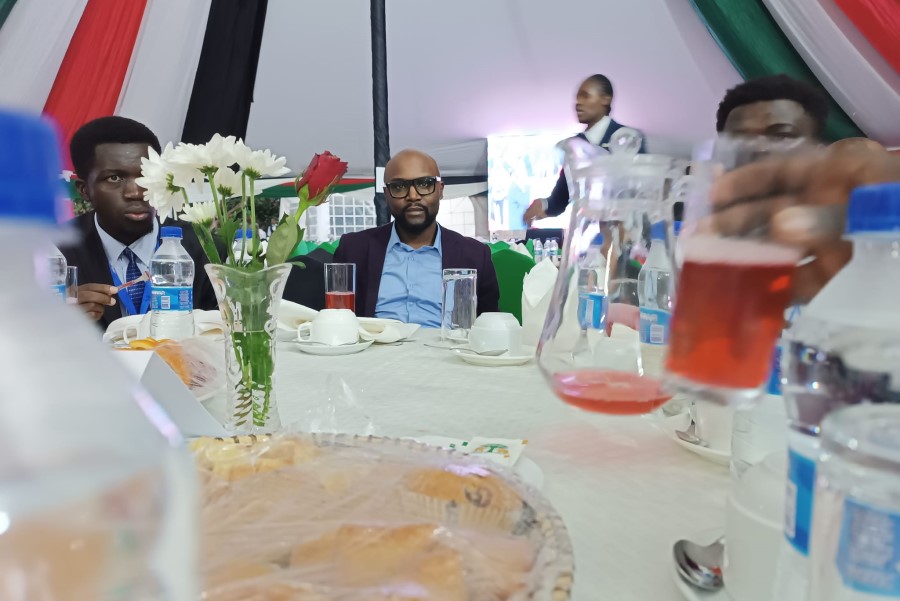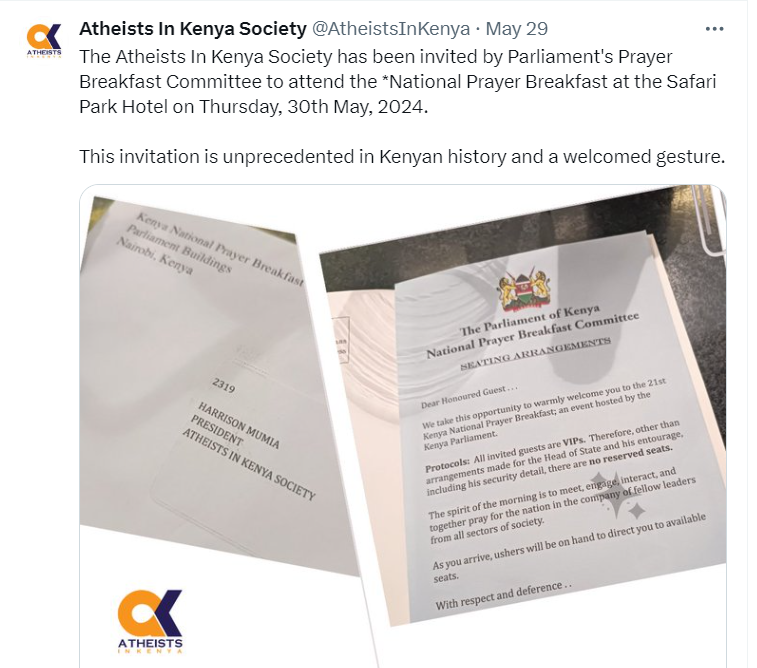



Harrison Mumia, President of Atheists in Kenya Society
Reflecting on the significance of the invitation, Harrison Mumia, President of Atheists in Kenya Society said:
“The invitation extended by Parliament for me to attend the National Prayer Breakfast is a significant milestone in Kenya’s ongoing journey towards greater religious freedom and interfaith cooperation. This gesture speaks volumes about the country’s commitment to fostering a culture of inclusivity, where people of all faiths, including those who hold non-theistic beliefs, can dialogue and work together.
By continuing to champion these inclusive practices, Kenya is poised to become a shining example of how a country can celebrate its diversity while also strengthening the bonds of national unity. We look forward to working with Christians, Hindus, and Muslims in fostering inter-faith dialogue in Kenya.”
 The National Prayer Breakfast is an annual ecumenical event offered under the auspices of the Speakers of the Kenyan National Assembly and the Senate, and organized by a group of dedicated volunteers who make up the National Prayer Breakfast Organizing Committee.
The National Prayer Breakfast is an annual ecumenical event offered under the auspices of the Speakers of the Kenyan National Assembly and the Senate, and organized by a group of dedicated volunteers who make up the National Prayer Breakfast Organizing Committee.
The invitation stands in stark contrast to the legal challenge to the organization’s registration filed by a member of the public. The court is expected to issue a date for judgment in July.
According to the Freedom of Thought Report, a secular nation on paper, Kenya’s Constitution enshrines the rights to freedom of expression, freedom of association and assembly, and freedom of conscience, religion, thought, belief and opinion. However, Christian and Muslim groups appear to benefit from a privileged position in society. The allegations made in the petition appear to be based on a lack of understanding of the right to freedom of religion or belief as enshrined in the Universal Declaration on Human Rights (quoted in the petition), the International Covenant on Civil and Political Rights – to which Kenya is a signatory – and, by extension, the Kenyan Constitution.
Founded in 2013, Atheists in Kenya Society is an Associate Member of Humanists International. The organization, which unites Kenya’s atheist community, became the first non-religious society to be registered under the Societies Act (CAP108) in February 2016 after its initial rejection. However, only two months later the organization’s registration was suspended after the then-attorney general, Prof. Githu Muigai cited complaints from religious groups.
The organization’s founder and President, Harrison Mumia, challenged their suspension at the High Court, succeeding in the reinstatement of society’s status in 2018.
Since its establishment the organization has worked to provide a community for atheists and foster open, rational, and scientific examination of the universe as well as advocate on the basis of humanist principles. They have sought to create acceptance of atheists living in Kenya.

Andrew Copson, President of Humanists International
Andrew Copson, President of Humanists International stated:
“The stark contrast between the State’s demonstration of support for freedom of religion or belief, and the public’s resistance to the existence of an explicitly non-religious organization demonstrates that there is yet some way to go before the non-religious are perceived as equal within society. Humanists International welcomes the State’s commitment and support in this endeavor.”
Photo credit: Harrison Mumia Facebook